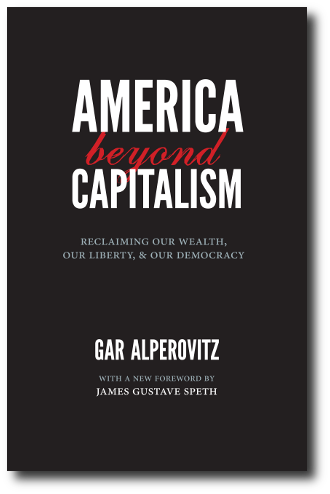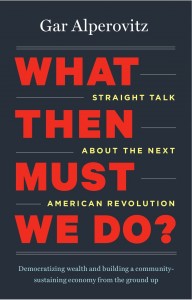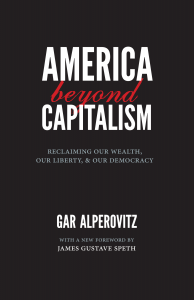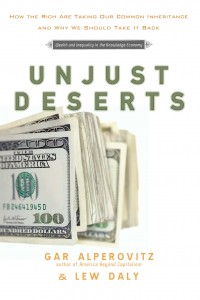January 2014 – November 2017
Sponsored by the University United Methodist Church and Cooperation Texas
Social Transformation through Social Innovation
La transformation sociale par l’innovation sociale
4th CRISES International Conference
Centre de recherche sur les innovations sociales (CRISES)
(Center for research on social innovations)
Dates: April 3 and 4, 2014
Place: Université du Québec à Montréal (UQAM), Montreal, Quebec, Canada
Languages: French and English
Opening address: Enzo Mingione, University of Milan-Bicocca
Confirmed keynote speakers: Gar Alperovitz, Luiz Inácio Gaiger, Florence Jany-Catrice, Jean-Louis Laville, Benoît Lévesque, Frank Moulaert, Marthe Nyssens and Bernard Pecqueur
CALL FOR PAPERS
There is a common consensus that we are currently undergoing an unprecedented period of rapid changes that are affecting our relation to time, space and society as a whole. Economic, social and institutional crises, along with political disinterest, growing inequalities and loss of meaning are combining to create a toxic climate marked by a loss of reference points and overall disenchantment. However, many people see in this a period of transition and an opportunity for renewal. For them, the crises give rise to a second modernity and a dynamic of innovation and transformation. From that perspective, the current disruptions, far from pushing civil society toward apathy, are taken as an opportunity to introduce social transformations that aim to redefine society on more solidarity-based, equitable, ethical, ecological and civic-minded terms.
In that context, the challenge for the social sciences consists of identifying not only the failures but also the new avenues and opportunities that are emerging. Through its research on social innovation, aligned with this perspective, the CRISES research centre seeks to understand the social reconstruction driven by the emergence of socially innovative developments at the micro and macro levels, including the impacts of these experiences on the social transformations taking shape. By investigating the actors, structures, subjects and impacts of these developments at once, the analysis of social innovation will help to determine the capacity for initiative on the part of individuals, organizations, collectivities and social movements. These investigations will also shed light on the process of innovation transfer and the role of public policy in the dynamics of institutionalization that arise from this transfer. However, to meet these challenges, which are both social and scientific in nature, research on social innovation would have to adopt a cross-disciplinary perspective and specify its epistemological and methodological stance. Only in this way can it produce action-oriented knowledge and ensure that the normative and ideological foundations of innovation are made explicit. Such a process will allow to go beyond the discourse of those creating innovation in order to address the political issues that accompany the emergence of any social innovation, and which have a determining influence on its durability and potential for social transformation.
Social innovation is, by definition, a transgression of rules and standards that may lead to a transformation of the prevailing order. There thus exists a constant dialectic between innovation and institution. In that context, the state is called on to provide the necessary support to innovation by relaxing or adjusting its public policies and by offering increased access to financial and informational resources. In addition, it must give the actors greater autonomy to let them unfold their transformative potential and provide the latitude necessary for engagement in the innovation process. Further, for social innovation to become a carrier of social transformation, it must engage in two types of processes: one, a collective learning and creation process that allows individuals and communities to (re)empower themselves, and, two, an interaction between the actors concerned that makes room for dialogue and compromise,
so that innovation can evolve in a dynamic of path building. Under these conditions, social innovation can then become the key ingredient of an alternative development strategy that gives rise to new values (solidarity, equity, social justice). The many references to social innovation that are currently made—to the point where social innovation has become a widely used concept—demonstrate that social innovation is not simply a fleeting reflection of a transition, but very much a constituent part of a new model that promotes a culture of change. However, this evolution raises questions about the orientation of that change: Who (or what) will it benefit? How will it be implemented?
The proliferation of social innovations alone is not sufficient to generate a new development model. Rather, it is by the embeddedness of these innovations within a new way of seeing and solving problems that social innovations can eventually embody the emerging paradigm, providing it with experiences that reflect new societal concepts. The spinoffs from social innovations vary depending on the specific institutional frameworks prevailing in the different sectors and territories, and on the period concerned. All of these aspects are likely to be of interest to research and to drive the development of knowledge about social innovation and its place in the process of social transformation.
The Economics of Sustainability conference will focus on the intersection of Economics and the Environment.
What will the Earth look like in 2030, 2050, or 2100? Can we organize economic relationships to honor the carrying capacity of the Earth? Can we implement economic models that respect the Earth and its finite boundaries?
How will we mitigate the effects of climate change in a way that honors the Earth and puts people before profit?
Programs will include workshops, networking meetings, action groups, and outstanding presentations from economists, scientists, activists, and leaders in the environmental movement. The goal is to launch a platform for systemic change — economically, culturally, politically — and to network organizations for collaborative efforts in that pursuit.
Confirmed Speakers: Gar Alperovitz, Ellen Brown, Richard Heinberg, Michael Brune, Randy Hayes, Mark Hertsgaard, Mark Z. Jacobson, Mayor Gayle McLaughlin (Richmond, CA), David Korten, Andrew Kimbrell Janet Redmond, Jihan Gearon, Don Shaffer, Nikki Silvestri, Osprey Orielle Lake, George Lakoff, Georgia Kelly, Representatives from the Mondragon Cooperatives (Spain): Pio Aguirre, Michael Peck, and more!
Partner: Women’s Earth and Climate Action Network (WECAN)
Co-Sponsors include RSF Social Finance, The Nation Magazine, YES! Magazine, Ethical Media Markets, Shift Network, Move to Amend, Firedoll Foundation, Appleby Foundation, Organic Valley, Pachamama Alliance, Presidio Graduate School, Straus Family Creamery, World Centric, and others being added.
The International Society for Ecological Economics 2016 Conference will be held this year at the University of the District of Columbia. This year, the conference tackles issues surrounding “Transforming the Economy: Sustaining Food, Water, Energy and Justice.” The plenary will feature distinguished speakers from across the globe spanning multiple disciplines to discuss the topic at hand. Gar Alperovitz will speak alongside Frances Moore Lappe’, author of Diet for a Small Planet and founder of the Small Planet Institute; Marina Silva, former Minister of Environment, and contender for the presidency of Brazil; Jairam Ramesh, former Minister of the Environment, who was recently reelected to the Upper House of the Indian Parliament. and more. To register, click here.
Gar Alperovitz will speak alongside Jodie Evans on “Capitalism and transition to Peace Economy” at this weekend conference at American University in Washington, D.C.
Join us to learn about and engage in working on viable alternatives to war and militarism.
Friday and Saturday events will be livestreamed at TheRealNews.com and videos posted there within three days after. All events, including Sunday’s, may possibly be livestreamed by American University.
 Gar Alperovitz, historian, political economist, activist, writer, and government official, will speak on Thursday, April 13 from 2:30-4 p.m. at the Lakeside Lodge at Stockton University. His lecture, “Donald Trump, The New Historical Era, and Emerging Trajectories of Longer Term Systemic Change,” will address where we find ourselves in history, why the time is right for a new-economy movement, what it means to build a new system and how we might begin.
Gar Alperovitz, historian, political economist, activist, writer, and government official, will speak on Thursday, April 13 from 2:30-4 p.m. at the Lakeside Lodge at Stockton University. His lecture, “Donald Trump, The New Historical Era, and Emerging Trajectories of Longer Term Systemic Change,” will address where we find ourselves in history, why the time is right for a new-economy movement, what it means to build a new system and how we might begin.
Gar Alperovitz will be speaking on Metro DC Democratic Socialists of America’s (DSA) Building the Green Economy panel discussion. The panelists will discuss the intersections of economic and environmental justice. Is a meaningful reduction in carbon emissions possible under capitalism? What are the political obstacles to a fair, ecologically-sustainable society? Confirmation of other panelists is forthcoming, but look forward to academics, activists, and folks in between! Join us to start a weekend of exciting events, including the People’s Climate March on April 29th and May Day on May 1st.
A donation of $5 is suggested at the door to cover costs and support DSA environmental justice campaigns. Doors open at 6:30. Join us after the event for an open house at the Institute for Policy Studies, 1301 Connecticut Ave NW, 6th floor.
For information on other events happening that weekend, visithttp://bit.ly/2nFy5IE.
Join Gar Alperovitz and the Democracy Collaborative on June 1st at 7pm at Busboys and Poets 14th and V for the launch of Gar’s new book: Principles of a Pluralist Commonwealth.
In this time of deepening political, economic, and ecological crisis, it’s more important than ever to not only resist the current political threats, but also build a new system—the world we hope to live in. Gar Alperovitz, co-founder of the Democracy Collaborative, co-chair of the Next System Project, and former Lionel Bauman Professor of Political Economy at the University of Maryland, sees our dark times as the potential prehistory of a period of fundamental and transformative systemic change. In the new book, he outlines his vision of the “Pluralist Commonwealth,” a new political-economy that moves beyond both corporate capitalism and state socialism. The book is designed as a small, easy to use handbook with short entries on the key elements of a next system, and is packed with concrete and hopeful examples of what can be done locally to build a new truly democratic political economy from the ground up.
In response to the swell of organizing that has taken place in recent months, the book will be released online for free to make it available for use by the greatest number of activists, organizers, and practitioners working at the grassroots level. However, limited-edition print copies of the book will be available at the Busboys and Poets launch event and at other resistance gatherings throughout 2017.
Introducing Gar on June 1st will be Robert Borosage, the founder and president of the Institute for America’s Future and co-director of its sister organization, the Campaign for America’s Future.
 AMERICA BEYOND CAPITALISM
AMERICA BEYOND CAPITALISM Agenda
Agenda  Posterboard
Posterboard 





